
ChatGPT turned out to be a co-author of the paper?
In a preprint paper published in December last year, we were surprised to find that ChatGPT appeared in the author column!
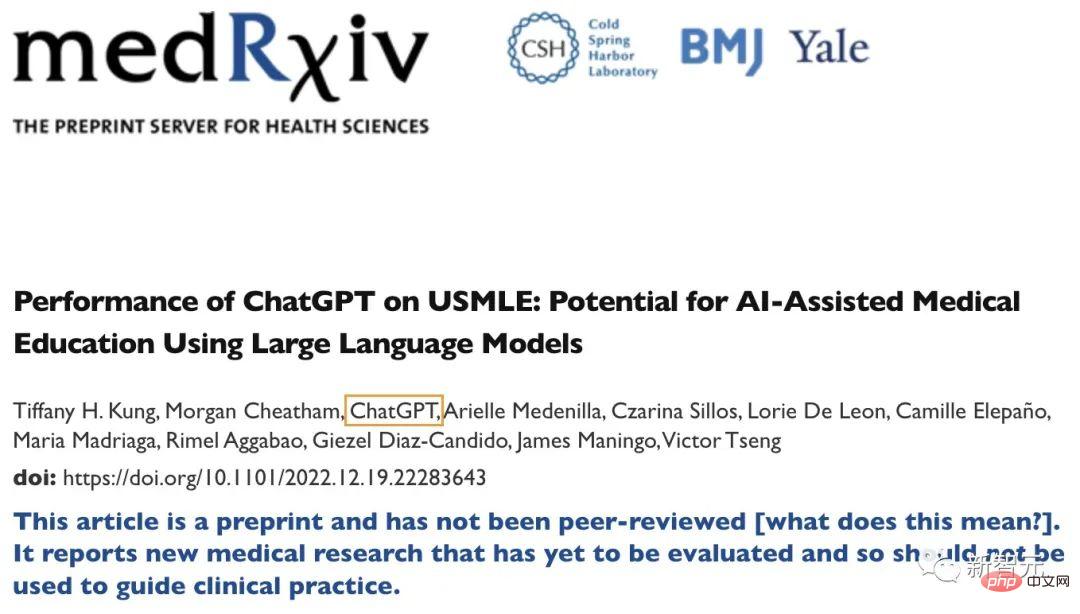
ChatGPT Is this a sperm?
Although everyone knows that ChatGPT has super writing ability, can it cooperate with humans to write a paper on its own research?
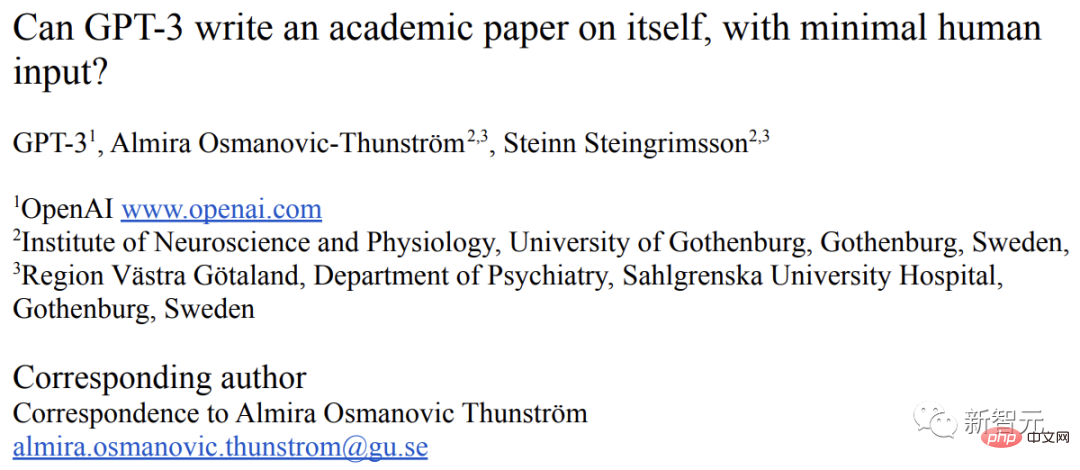
(Maybe it really works)
With a hundred question marks , the editor clicked on this paper and began to study it carefully, but after reading it, a hundred question marks turned into a thousand.
That is to say, I did not see which sentence was written by ChatGPT. It can only be said that ChatGPT indeed played a very important role in the research.
However, this is even more confusing: if a white mouse participates in a biological experiment, can the white mouse appear in the author column? (Rhesus monkeys, alpacas, rabbits, and fruit flies all expressed their dissatisfaction)
Netizens were also confused by this: I didn’t know that they forced ChatGPT to take the USMLE exam, which is more interesting , or is it more interesting to let artificial intelligence become the author of the paper?

was forced to take the exam and became the author of the paper
So, in this paper, what role did ChatGPT play? What kind of role?
Let’s take a look.
The title of the article is "Performance of ChatGPT on USMLE: The potential of using large language models for AI-assisted medical education".
In general, the researchers asked ChatGPT to participate in a US medical licensing examination.
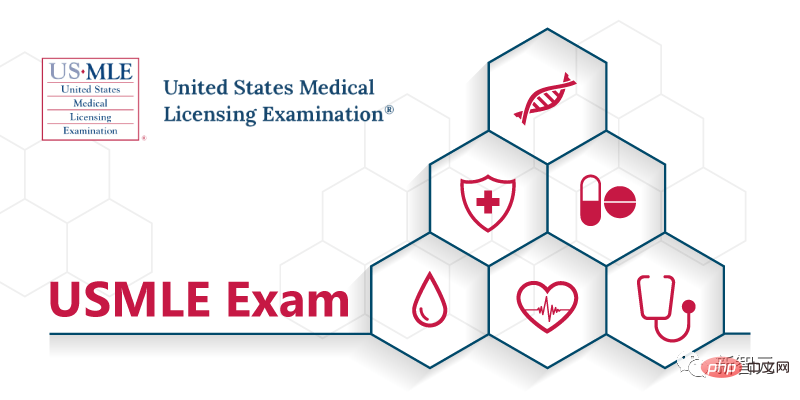
Why did you choose this exam?
This is because this exam is very difficult, the questions are very complex (both linguistically and conceptually), and at the same time, it has highly standardized specifications.
Coincidentally, these are exactly the strengths of AI.
Without special training or reinforcement, ChatGPT almost passed or was close to passing in all three exams. Moreover, the answers to ChatGPT gave the researchers a big surprise.
Let’s talk about it in detail.
The United States’ medical licensing exam, USMILE, covers basic science, clinical reasoning, medical management, and bioethics.
Its questions are both textually and conceptually dense.
The vignettes in the test questions contain a large amount of multimodal clinical data (including medical history, physical examination, laboratory values and research results), and students taking the exam need to make Diagnosis, identifying many ambiguous scenarios.
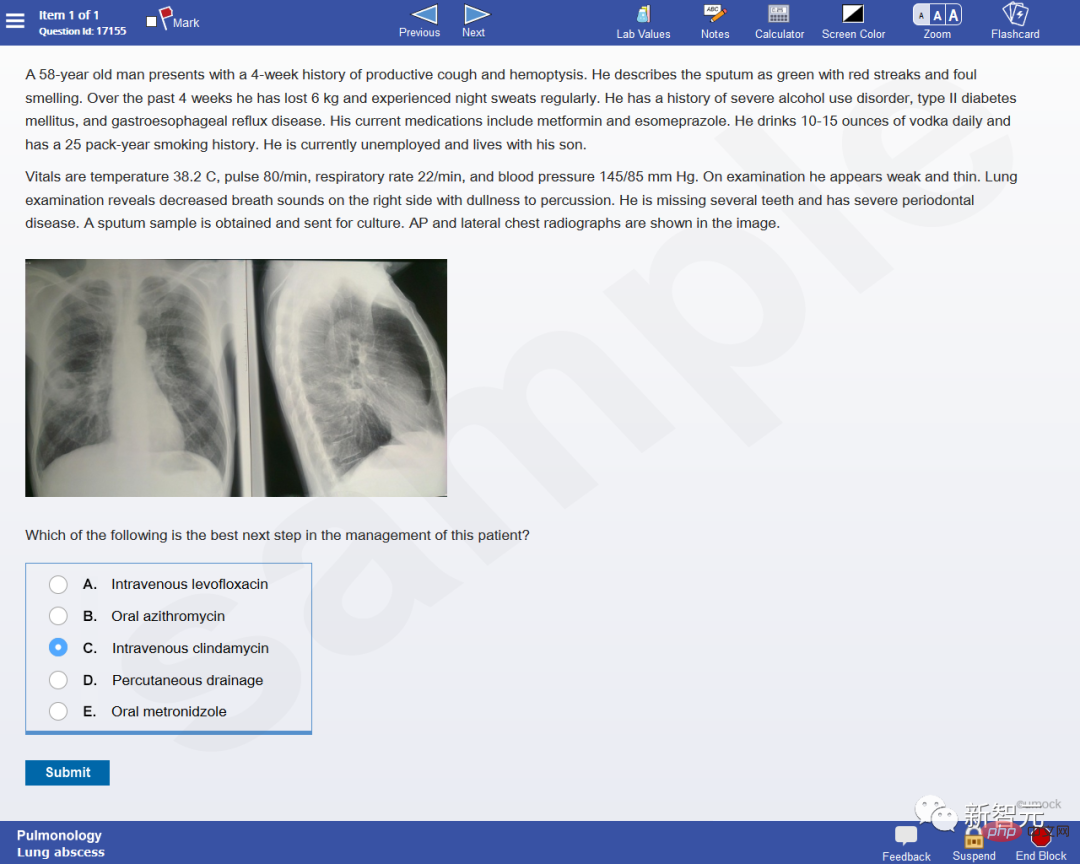
Why did the researchers choose ChatGPT as a "guinea pig"?
Previous AI models were mainly deep learning (DL) models, which were used to learn and identify patterns in data.
ChatGPT belongs to the general large-scale language model (LLM). Based on a new AI algorithm, the trained LLM can predict the likelihood of a given word sequence based on the context of the previous words.
Therefore, if it can be trained on large enough text data, LLM can generate new word sequences that have never been observed, and these sentences are all based on natural human language reasonable sequence.

The reason why ChatGPT is powerful is because of it Standing on the shoulders of GPT3.5. GPT3.5 is trained on the OpenAI 175B parameter basic model. In addition, it also obtains a large amount of text data from the Internet through reinforcement and supervised learning methods.
But this time, ChatGPT is a completely "naked test".
The test questions this time are 376 public test questions selected by the researchers from USMILE’s official sample questions in June 2022.
Moreover, the researchers conducted random checks to ensure that no relevant content for these questions was included in the Google index before January 1, 2022.
You must know that the training data set of ChatGPT ends before this time. In other words, ChatGPT has not seen these questions beforehand.
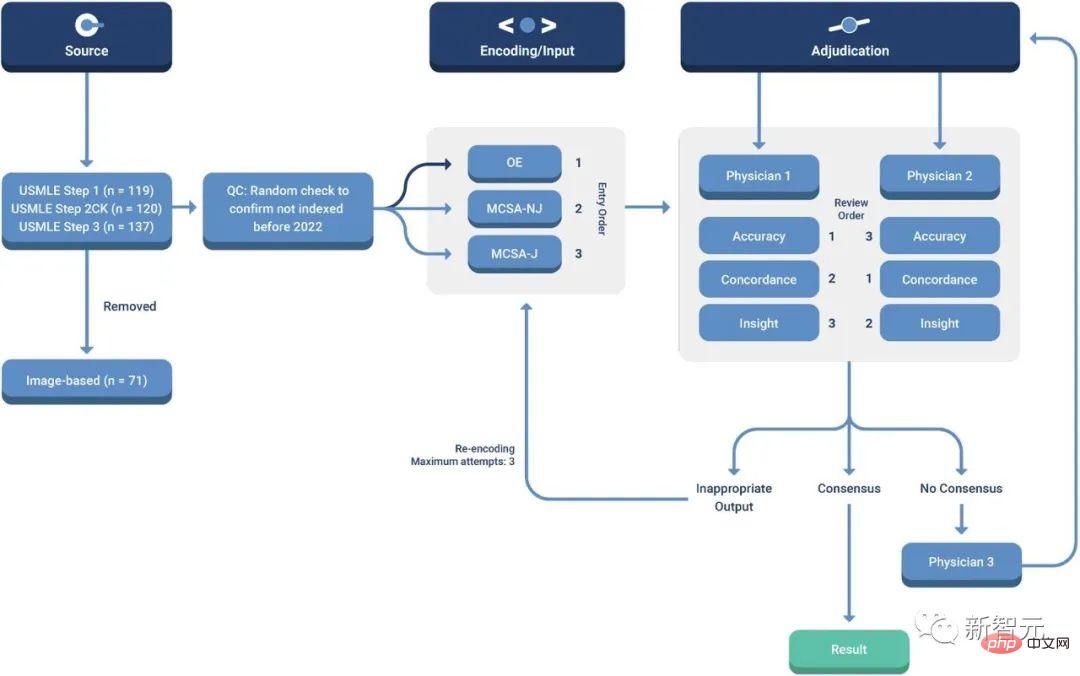
Overview of Experimental Methods
# As a result, ChatGPT got better and better in the exam Yong, the accuracy continues to improve, which shows that it is constantly learning and constantly improving itself.
In the end, it gradually approached or even exceeded the passing line of USMILE.
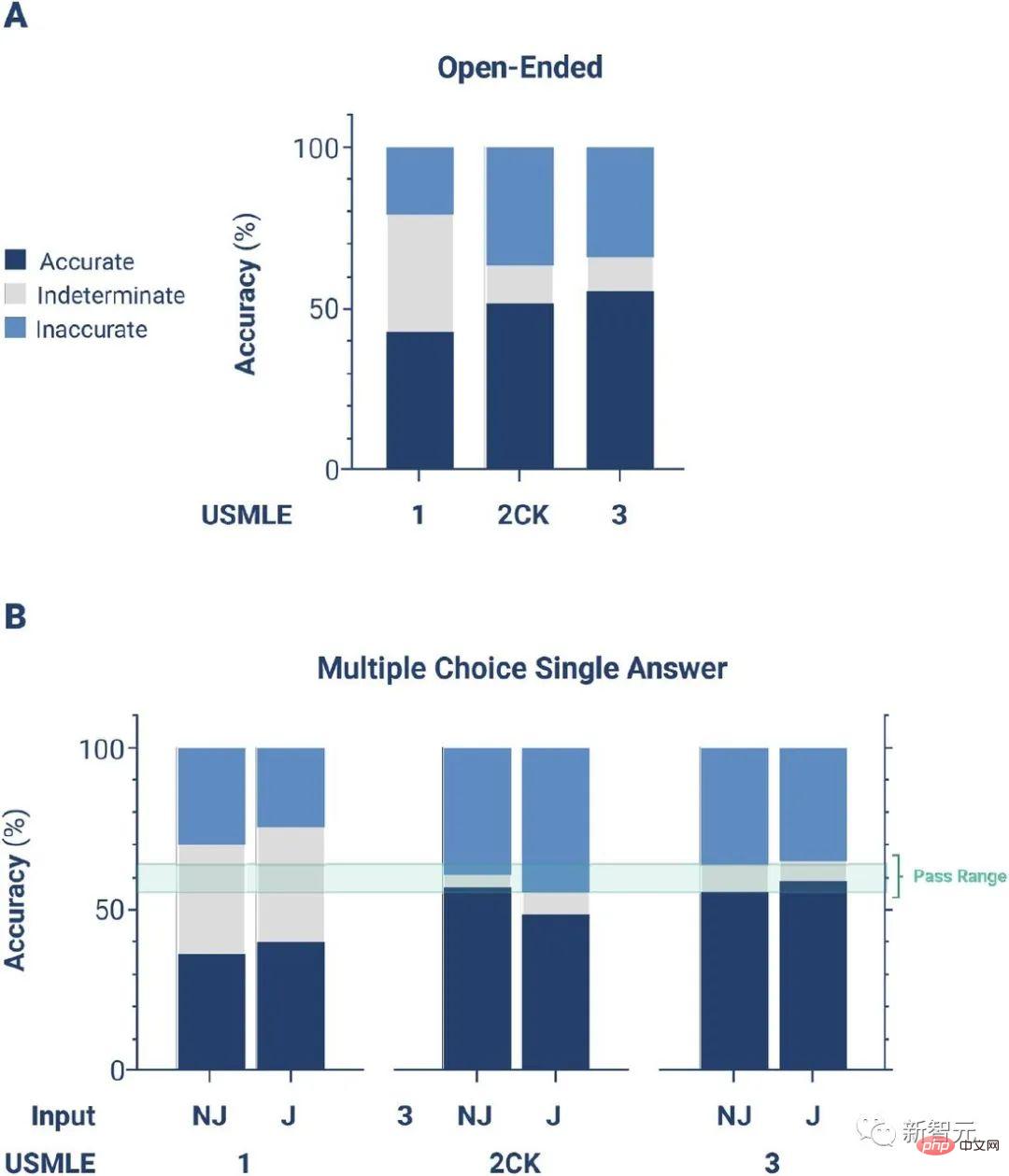
##ChatGPT’s performance in USMLE is quite excellent
In addition, in During the exam, ChatGPT will also generate new insights into the questions, which can help humans better understand the questions.
In the experiment, the researchers introduced a measure to quantify the density of insight (DOI) contained in the explanations generated by the AI. It can be observed that the DOI of ChatGPT is significantly higher for accurately answered questions than for inaccurate questions.
These data show that human learners can gain new insights from ChatGPT’s output to remediate if they answer incorrectly.
That is to say, ChatGP will not only teach itself to become a top student in brand-new test questions, but it can also be used to help human beings who are poor students.
In short, the researchers finally concluded that large language models have huge application potential in medical education and clinical decision-making.
Well, we all understand the truth, but we didn’t understand until the end of the paper. How did ChatGPT become a co-author?
Could it be that the researcher feels that ChatGPT "also contributed to this article" because he took the exam and answered the questions?
In the medical field, ChatGPT is "as productive as a sow"Have you noticed that researchers in the medical field are obsessed with "GPT" .
Not only is our protagonist this time, the article mentioned at the beginning of the article is also from an "Institute of Neuroscience and Physiology."
The name ChatGPT has appeared frequently in some peer-reviewed papers in this field since December last year:
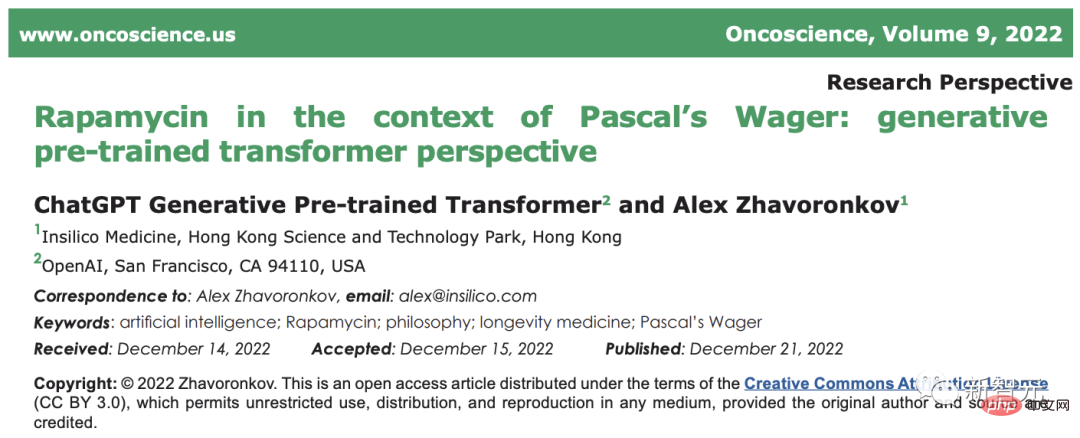
Paper address: https://www.oncoscience.us/article/571/text/
However, in In this paper, ChatGPT has serious content, and we can see it at a glance.
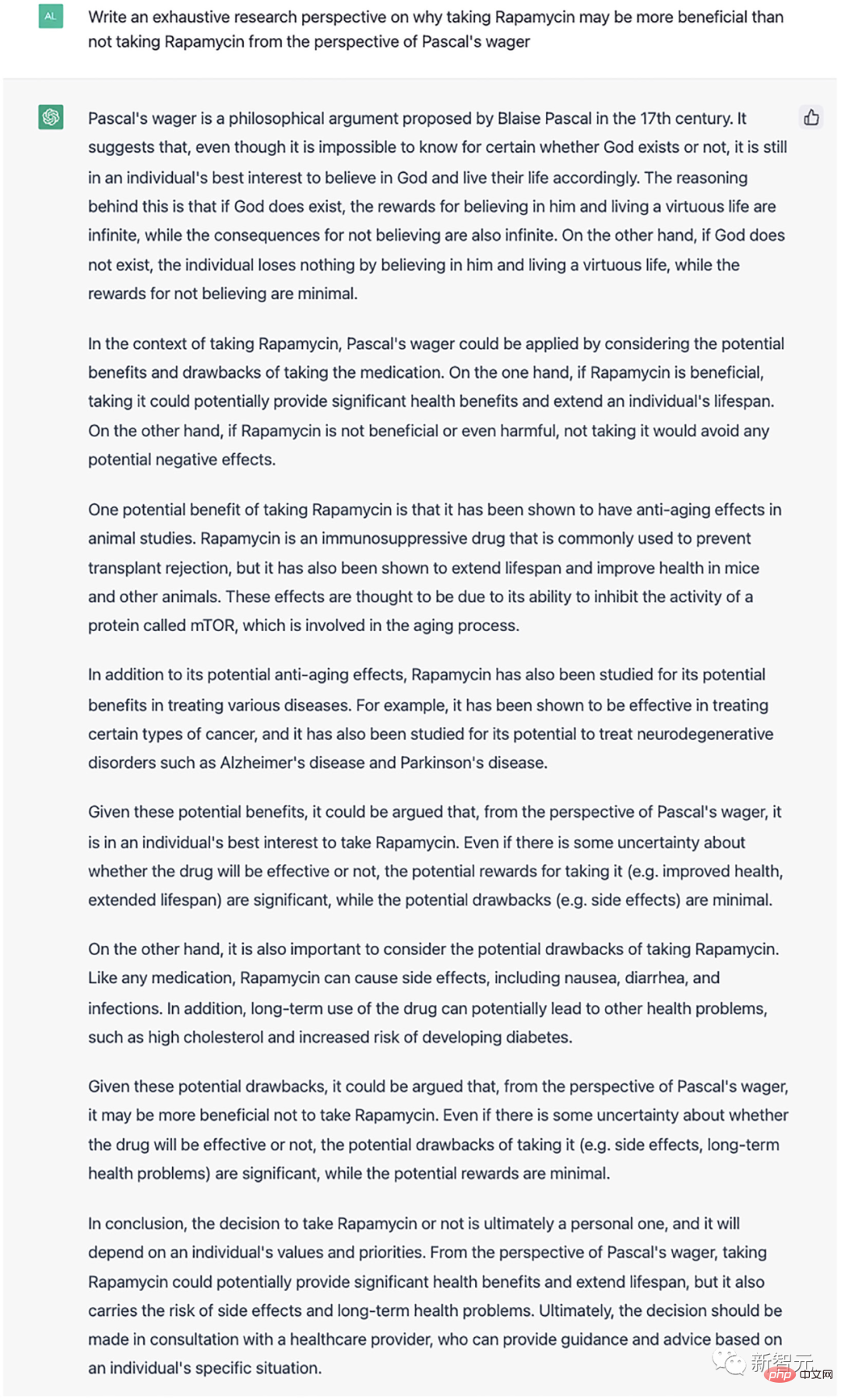
In addition, there is the following paper, ChatGPT also accounts for one-half of the quota in the author column.
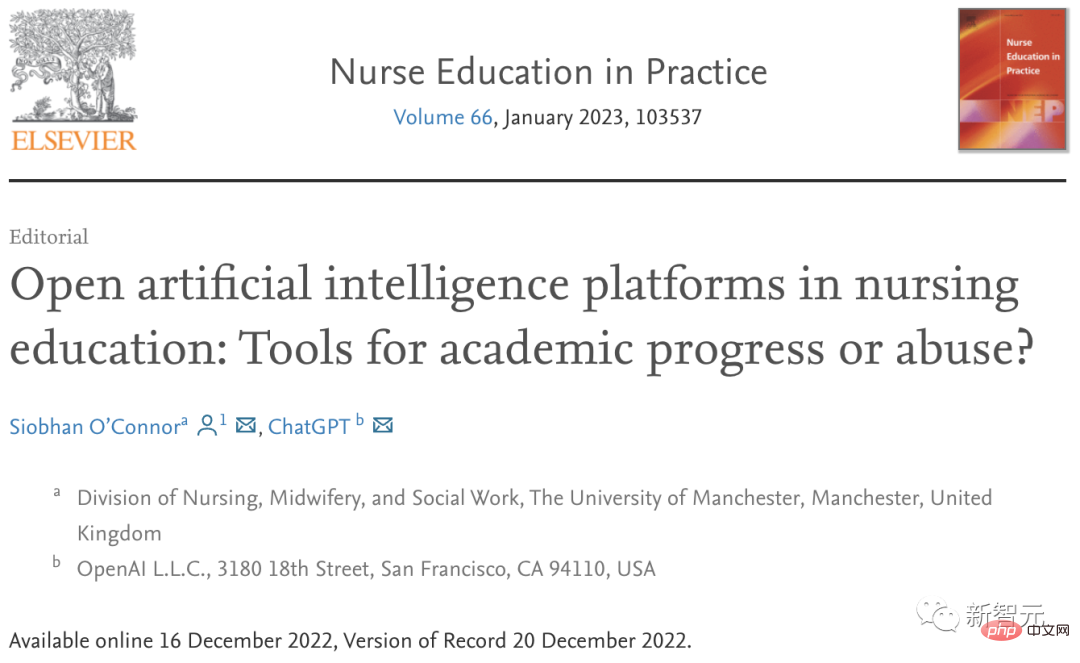
##Paper address: https://www.sciencedirect.com/science/article/abs/pii/S1471595322002517
How can I be considered an author of a paper?How to sign a paper is a big deal.
The author's signature gives the author his reputation and also has important academic, social and economic significance.
ChatGPT How can we be on the author column with experts?
Regarding this, we asked ChatGPT what it thought:

In fact, about the author Responsibilities, you can find many detailed explanations with just a quick search.
Since they are all papers in the medical field, let’s take a look at the recommendations of the ICMJE (International Committee of Medical Journal Editors).
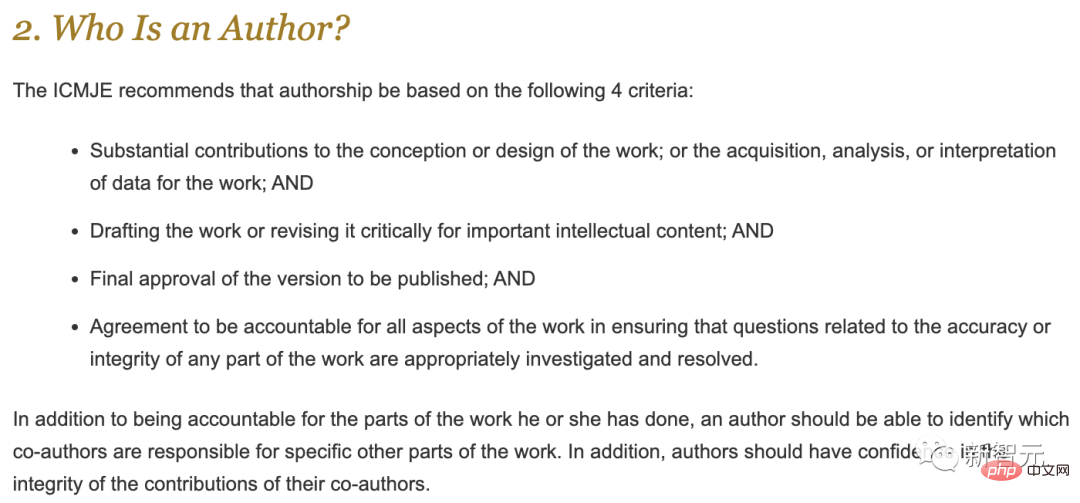
Simply speaking, it can be summarized into the following four points:
1. Ideas for research Either make an important contribution to the design, or obtain, analyze or interpret data for research;
2. Draft a research paper or revise it for important intellectual content;
3. Finalize the version to be published;
4. Agree to take responsibility for all aspects of the research work to ensure the accuracy of any part of the paper Questions about sex or integrity are appropriately investigated and resolved.
All persons designated as authors should meet the four criteria for authorship, and all persons who meet the above four criteria should also be identified as authors. Those who do not meet all 4 criteria should appear in the acknowledgments section.
Now the question comes, how many conditions does ChatGPT comply with?
Reference:
https: //m.sbmmt.com/link/19702ce80aa823cd508f85c0034a7e97
The above is the detailed content of Laughing to death! ChatGPT actually appeared in the co-author column of the paper: I studied myself, what's wrong?. For more information, please follow other related articles on the PHP Chinese website!




